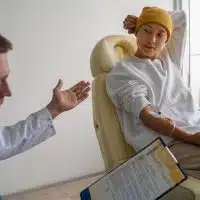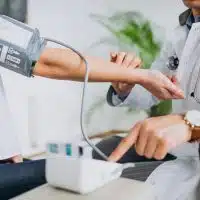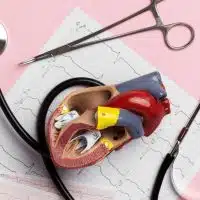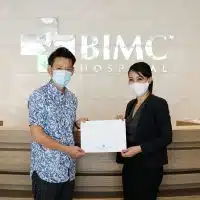
Travel is an exciting experience that allows people to discover new locations and cultures. However, for those with chronic medical illnesses, traveling takes thorough planning to protect their safety and well-being. Whether you have diabetes, heart disease, asthma, or other long-term conditions, proper preparation can help you reduce health risks and allow you to enjoy your vacation with confidence.
This guide covers pre-travel preparations, in-transit strategies, and post-travel care to help you manage your condition efficiently while traveling.
Pre-Travel Preparations
1. Consult Your Healthcare Provider
Schedule a medical check-up at least 4–6 weeks before traveling. This allows time for necessary vaccinations, medication adjustments, and travel advice specific to your condition. Your doctor can provide:
- A travel health plan, including emergency procedures if symptoms get worse
- Written documentation of your medical history, prescriptions, and allergies
- Advice on vaccinations required for your destination
2. Research Health Risks at Your Destination
If you’re visiting another country, check travel advisories and health risks in the country you’re visiting. The Centers for Disease Control and Prevention (CDC) and World Health Organization (WHO) provide up-to-date information on prevalent diseases, climate conditions, and local healthcare facilities.
3. Medication Management
Pack Adequate Medication Supplies
- Bring enough medication to last the entire trip, plus extra in case of delays.
- Carry prescriptions in their original labeled packaging to avoid issues at customs.
- Consider bringing a doctor’s note detailing the necessity of your medications.
Check Legal Restrictions
Some countries have strict regulations on prescription medications. Research whether your medication is legal at your destination and obtain necessary approvals if required.
4. Travel Insurance with Medical Coverage
Invest in comprehensive travel insurance that covers pre-existing conditions, hospitalization, and medical evacuations. Read the terms and conditions to ensure that your specific condition is covered.
5. Prepare an Emergency Medical Kit
A well-stocked travel medical kit should include:
- Extra doses of prescription medications
- Over-the-counter medications for pain, nausea, and diarrhea
- Antiseptics, bandages, and basic wound care supplies
- A medical alert bracelet if applicable
6. Organize Emergency Contacts
Keep a list of emergency contacts, including your doctor, local healthcare providers at your destination, and family members. Store copies of medical records in both digital and physical formats.
In-Transit Considerations
1. Air Travel Precautions
Oxygen and Mobility Assistance
- If you require supplemental oxygen, notify the airline in advance.
- Request wheelchair assistance if mobility is a concern.
Deep Vein Thrombosis (DVT) Prevention
- Move around every couple of hours on long flights.
- Wear compression stockings to prevent blood clots.
- Stay hydrated and avoid excessive alcohol or caffeine.
Managing Medications During Flight
- Keep essential medications in your carry-on luggage.
- Follow airline security rules regarding liquid medications.
- Set reminders to take medication on time, especially if crossing time zones.
2. Dietary Considerations
- Request special meals on flights if you have dietary restrictions.
- Pack snacks that align with your dietary needs to avoid food-related health issues.
Post-Arrival Health Management
1. Locate Medical Facilities
Upon arrival, identify nearby hospitals, pharmacies, and urgent care centers. Carry a card with translated medical information if traveling to a country with a different language. You can easily find BIMC Nusa Dua using online map.
2. Adapt to Local Climate and Environment
Changes in climate, altitude, or pollution levels can affect health conditions like asthma or heart disease. Take time to acclimate and take necessary precautions, such as wearing masks in high-pollution areas or adjusting medication schedules.
3. Monitor Your Activity Levels
While it’s tempting to explore extensively, avoid overexertion. Maintain to a manageable pace and listen to your body’s signals.
Post-Travel Health Check
1. Monitor for Any Health Changes
After returning home, observe any unusual symptoms, especially if you traveled to regions with infectious diseases. Some illnesses, such as malaria or gastrointestinal infections, may have delayed onset.
2. Follow Up with Your Doctor
Schedule a consultation with your healthcare provider to discuss any issues encountered during your trip and to ensure your health remains stable.
Traveling with a chronic medical condition requires planning and awareness, but it should not prevent you from exploring the world. Proper preparation, knowledge, and medical support, can ensure you a safe and enjoyable trip. Always prioritize your health and be proactive in managing medical conditions while traveling.
BIMC Nusa Dua offers high-quality, international-standard healthcare services to assist your medical conditions. Book your pre-travel and post-travel health check-up today!











